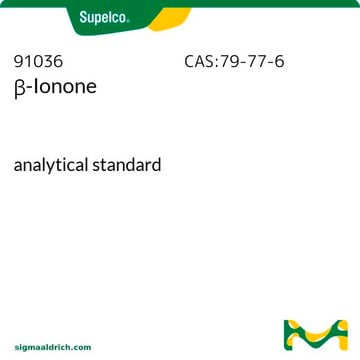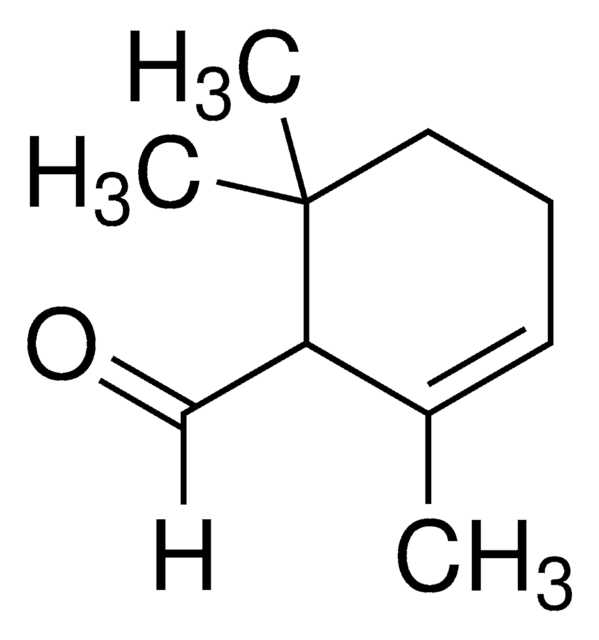16976
β-Cyclocitral
analytical standard
Synonym(s):
2,6,6-Trimethyl-1-cyclohexene-1-carboxaldehyde
About This Item
Recommended Products
grade
analytical standard
Quality Level
Assay
≥97.0% (GC)
shelf life
limited shelf life, expiry date on the label
refractive index
n20/D 1.497 (lit.)
n20/D 1.497-1.501
bp
62-63 °C/3 mmHg (lit.)
density
0.943 g/mL at 25 °C (lit.)
application(s)
cleaning products
cosmetics
flavors and fragrances
food and beverages
personal care
format
neat
storage temp.
2-8°C
SMILES string
[H]C(=O)C1=C(C)CCCC1(C)C
InChI
1S/C10H16O/c1-8-5-4-6-10(2,3)9(8)7-11/h7H,4-6H2,1-3H3
InChI key
MOQGCGNUWBPGTQ-UHFFFAOYSA-N
Looking for similar products? Visit Product Comparison Guide
General description
Application
Signal Word
Warning
Hazard Statements
Precautionary Statements
Hazard Classifications
Acute Tox. 4 Dermal - Acute Tox. 4 Inhalation - Acute Tox. 4 Oral - Eye Irrit. 2 - Skin Irrit. 2 - STOT SE 3
Target Organs
Respiratory system
Storage Class Code
10 - Combustible liquids
WGK
WGK 2
Flash Point(F)
235.4 °F - closed cup
Flash Point(C)
113 °C - closed cup
Choose from one of the most recent versions:
Already Own This Product?
Find documentation for the products that you have recently purchased in the Document Library.
Customers Also Viewed
Our team of scientists has experience in all areas of research including Life Science, Material Science, Chemical Synthesis, Chromatography, Analytical and many others.
Contact Technical Service










